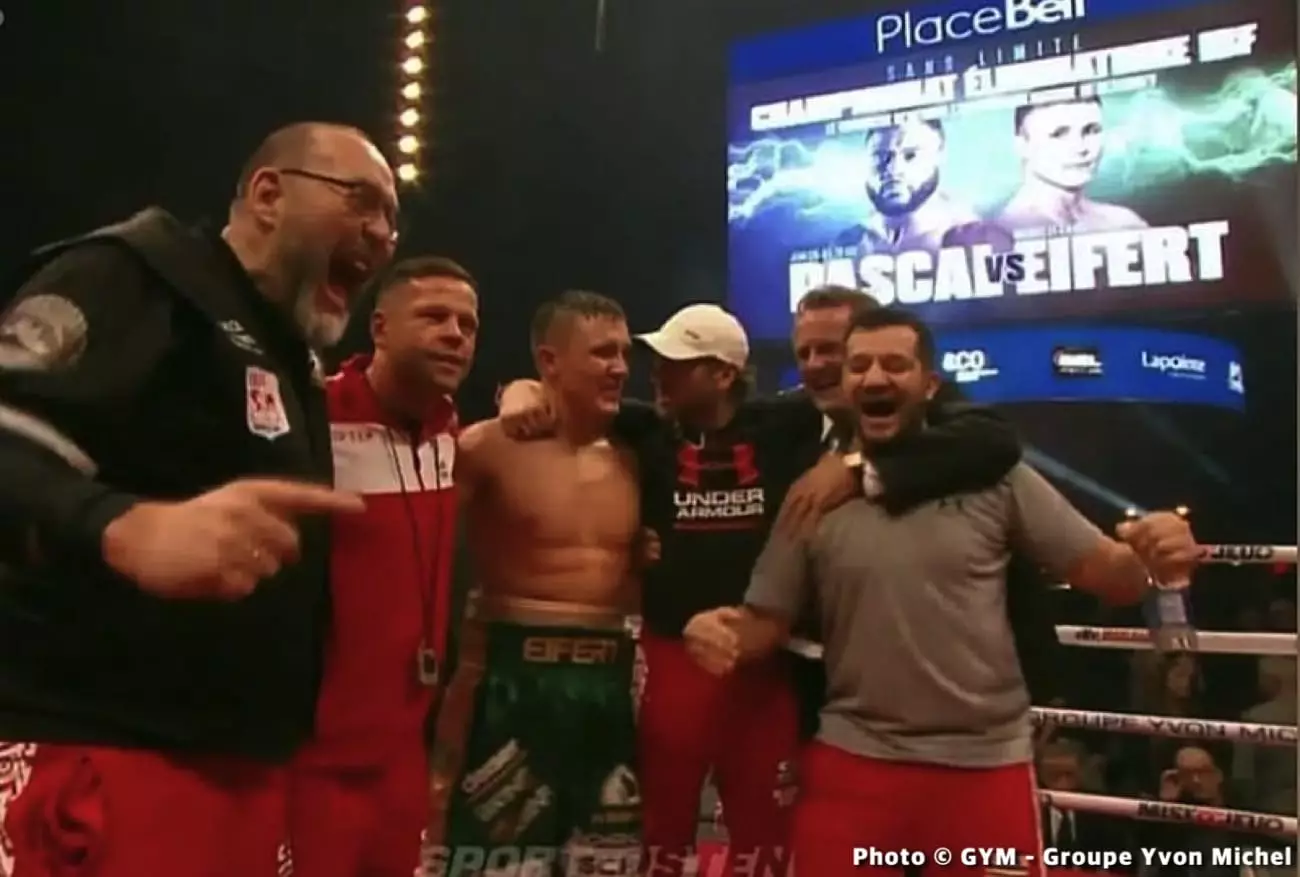In the ever-evolving landscape of professional boxing, the pursuit of championship titles is often marred by regulatory stipulations and mandatory defenses. Recently, the International Boxing Federation (IBF) has significantly complicated the potential rematch scenario between Artur Beterbiev, the undefeated four-belt champion in the light heavyweight division, and Dmitry Bivol. This pivot comes after the IBF mandated a title defense for Beterbiev against the emerging contender, Michael Eifert.
German boxer Michael Eifert has been orbiting the spotlight after securing his IBF mandatory status by triumphing over the seasoned Jean Pascal in March 2023. The unanimous decision not only marked a career milestone at the age of 40 for Pascal but also solidified Eifert’s position as a formidable challenger—showcased further by his knockout victory over Carlos Eduardo Jimenez just a few months later. Eifert’s journey to this stage exemplifies the unpredictable yet often rewarding nature of the sport; however, it also highlights the challenges that champions like Beterbiev face in their quest to unify their titles.
Beterbiev’s reluctance to vacate his title shines through, especially considering the strong public interest surrounding a possible rematch with Bivol. For Beterbiev—a fighter known for his competitive spirit and fight IQ—stepping up to face Eifert may not seem as appealing as the prospect of settling unfinished business with Bivol after their controversial first encounter. This predicament raises questions about whether Beterbiev would consider a step-aside deal, allowing him to postpone mandatory defenses while potentially pocketing a significant financial incentive.
Meanwhile, Bivol’s camp has taken an assertive stance by filing appeals with multiple boxing authorities, necessitating further scrutiny of Beterbiev’s obligations. The backlash from fans regarding this move reveals a keen awareness of the high stakes involved, particularly in light of the previous fight’s disputed results. Bivol’s motivations appear rooted in a desire to reclaim glory and prove that their initial bout should not define his career trajectory.
The IBF’s steadfastness in ordering Beterbiev to defend his title against Eifert—despite Bivol’s appeal—raises intriguing considerations for the light heavyweight division. If the IBF remains firm in its decision, this could set a precedent for how mandatory defenses interact with aspirations for high-profile rematches in boxing, thus impacting future titleholders and contenders. Eifert stands at a crossroads; accepting a high-stakes fight against Beterbiev could secure his status and provide a platform for him to showcase his abilities at a much larger scale.
As the boxing community navigates this developing situation, all eyes will be on Beterbiev, Bivol, and Eifert. The intersection of their careers reflects broader themes of ambition, regulatory pressures, and the subsequent consequences for fans who crave exciting matchups. With Beterbiev’s intentions unclear and Eifert positioned as a daunting challenger, this evolving narrative will undoubtedly shape not only the future of these fighters but the landscape of light heavyweight boxing as a whole. In a sport defined by unpredictability, the next chapter promises to be as electrifying as it is uncertain.

